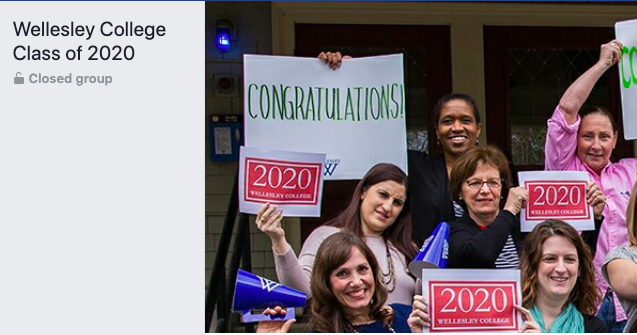The campus’s pervasive police presence at parties, over-involved residential directors living in dorms and ongoing student housing crisis are indicative of a greater issue at hand; what little freedom students do have is entirely contingent on the consent of those in administration watching over us. Wellesley College is decidedly un-fun, and students are scrambling to compensate.
In this distinctly Orwellian environment, bureaucratic monitoring of student life has become the norm. Students are forced to decide between two equally unfavorable options: tolerate the constant voyeurism of authority, or spend our time at Wellesley advocating for ourselves. In the rare instances in which administration is actually invited to the conversation, they fall short — as proven by their recent, outright rejection of attending the student-lead townhall.
Wellesley College has made it publicly known in actions such as this that its administration is comfortable playing the part of students’ powerful, all-knowing parental supervisor.
This toxic pattern of overhead distrust is manifesting itself further on social media. On Facebook, class groups and similarly exclusive shared student pages are being increasingly infiltrated by administration. Deans and leaders of student services such as Housing, among other representatives from the College, are able to read and interact with student concerns posted in what students mistakenly believe to be private spaces.
Theoretically, administrative presence on student-lead social media should benefit all parties involved. Facebook provides an avenue for direct confrontation and wide-reaching student body access much more convenient than mass email; Wellesley College benefits from the intel gained by way of student feedback and the ability to quickly mitigate and respond to damage to their public image.
In practice, however, this digital integration of student life and College administration has been unprecedentedly harmful to the relationship between the two already-polarized Wellesley entities.
This semester, for example, displaced students looking for solace posted their disgruntled, confused, and otherwise-terrified reactions to the housing crisis. As the Office of Residential Life provided the dormless with little to no information about other students affected, nor did they share a solution timeline, many students flocked to their class page Facebook group for answers and assistance.
Students found that representatives from the Office of Residential Life were immediate to emotionally react to and methodically dissect their comments on the crisis. Writing to an upset commenter on a post about the housing issue, Director Helen Wang wrote: “I love that you are supporting a sib and I appreciate the spirit in which that was intended.”
An earlier comment by Wang on a separate but related thread read: “Please know that we understand the frustration and I do want to say yes, definitely we should NOT be tying our financial holds to housing. That is not the way that I want to do this moving forward and you can have this on the record.”
The issue arises in strained social interactions like this. Where do we draw the line between “on the record” statements and individual, person-to-person conversation? What is the administration’s social media responsibility, as a corporation? When does student — and bureaucratic — digital presence meet tangible ramifications?
The goal of these student Facebook groups is unclear; defining what is private and what is public makes for an incomprehensible challenge. Are these spaces meant to be informal townhall-type groups for students to vent their concerns and share their experiences among their own community? Are they meant to establish an official and efficient means of communication between the student body and administration?
There is no place, virtual or real, in which students can share their experiences privately and honestly. This is a problem.
Page moderators are most frequently full-time students at the college, already burdened with the heavy workload at Wellesley and life, virtual and non-. With some unofficial College groups boasting 5,000+ members, it is almost impossible to monitor each and every user joining the group.
The ones to blame — as proven by not only the College’s history, but that of the United States’ and the world as a whole — are the ones in charge.
It is the administration’s responsibility to know and understand their place in student life. While it is clear to students their role is not only to be educated, but to minister — and advocate, and advocate — Wellesley College higher-ups need to look at their position as the most powerful player in the constant student-admin struggle, and get out of our groups and our meme pages. If this means developing a new platform for cross-communication between us and them, so be it.
This problem cannot be solved by students alone. We need help: from the top of the Bubble, and beyond.




